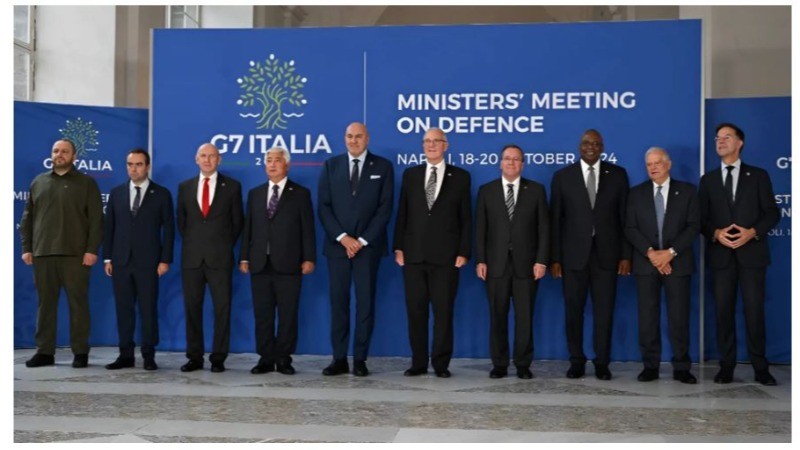
G7 defense ministers met in Naples, Italy, to discuss various military conflicts and expressed their commitment to providing strong support for Ukraine, which is currently enduring its third year of war against Russia. The meeting, held in a city with a NATO base, was the first ministerial gathering dedicated to defense under Italy's G7 presidency.
In their concluding remarks, the ministers reaffirmed their dedication to assisting Ukraine with both immediate and long-term military support. They represented Italy, France, Germany, Britain, Japan, Canada, and the United States. The group also voiced concerns about escalating tensions in the Middle East, particularly in Lebanon, where recent strikes on UN peacekeepers have raised alarms. The UN has attributed these strikes to Israel, further complicating the situation.
The G7 defense ministers highlighted their worries regarding all threats to the United Nations Interim Force in Lebanon (UNIFIL) and urged Iran to halt its support for militant groups such as Hamas and Hezbollah. This call followed reports of a meeting between Iran's Foreign Minister Abbas Araghchi and a Hamas representative in Istanbul.
At the beginning of the one-day meeting, Italian Defense Minister Guido Crosetto addressed the growing security challenges, pointing to instability in sub-Saharan Africa and increasing tensions in the Asia-Pacific region. The discussions also touched on the recent killing of Hamas leader Yahya Sinwar, linked to the violent conflict that erupted after the October 7 attacks on Israel. Both NATO chief Mark Rutte and EU foreign policy chief Josep Borrell attended the meeting, emphasizing the potential for a ceasefire in light of these developments.
Borrell proposed that the UN Security Council should enhance the mandate of UNIFIL peacekeepers to better equip them to respond to ongoing attacks, which they attribute to Israeli forces. He remarked on social media earlier that a stronger mandate for UNIFIL is essential, given their current limitations.
Italian Prime Minister Giorgia Meloni condemned the attacks on UN peacekeepers as “unacceptable,” noting Italy's contribution of around 1,000 troops to the multinational force stationed in Lebanon.
As G7 ministers reiterated their commitment to Ukraine, the country faces another winter of war, with significant battlefield losses and concerns about reduced US military support should Donald Trump reclaim the presidency in the upcoming election. President Biden, during a visit to Berlin, urged NATO allies to remain united in their support for Ukraine.
Ukrainian President Volodymyr Zelensky is under pressure to devise an effective strategy against Russia, recently proposing a “victory plan” to the European Union and NATO. This plan includes immediate NATO membership, which allies find impractical, and requests for long-range weapons to target military sites in Russia, along with a “non-nuclear strategic deterrence package” for Ukraine.
Ukraine is also monitoring reports from South Korean intelligence suggesting that North Korea is sending troops to aid Russia's military efforts in the conflict, although NATO has not confirmed this information.
Outside the meeting venue in Naples, demonstrators expressed their support for Palestine, waving flags and wearing keffiyehs, with some clashes reported between protesters and police.